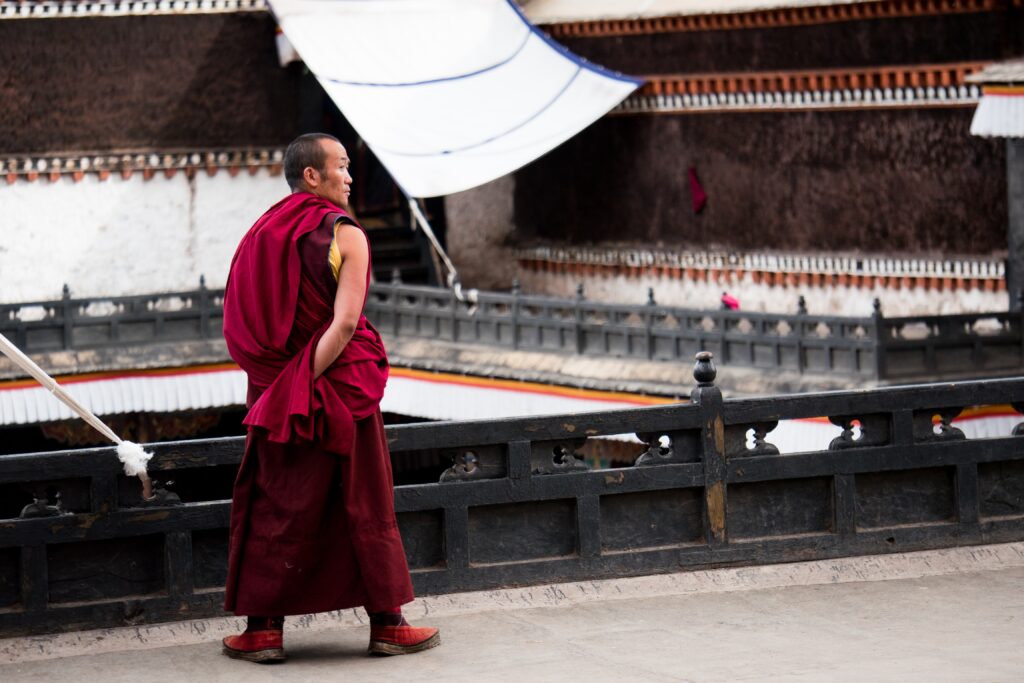“The Lion King: Exploring African Spiritual Beliefs through Animation” takes viewers on a journey through the vibrant and diverse spiritual beliefs of African cultures. In this animated Disney movie, we witness the significance of ancestral lineage, the deep reverence for nature, and the acceptance of the cycle of life and death. Through rituals and traditions, the film showcases how spirituality and tradition can shape decision-making and foster personal growth. Drawing inspiration from various African cultures, The Lion King utilizes Swahili as the language of the Pride Lands, lending an authentic African setting to the story. Though not specifically based on one African culture, the film incorporates themes that resonate with African spirituality, conveying powerful symbols and moral messages about hope, determination, responsibility, and loyalty. While it can be interpreted as having religious allegories, The Lion King transcends any specific religion and touches the hearts of people of all faiths. A beloved and highly successful animated film since its release in 1994, The Lion King continues to captivate audiences with its rich storytelling and universal themes. Although there are similarities to the legend of Sundiata, the film is not directly based on his story.

Background of The Lion King
The Lion King, an animated Disney movie, holds a special place in the hearts of many viewers. Released in 1994, the film is not only a captivating story but also a reflection of the spiritual beliefs of African cultures. African spirituality places great importance on ancestral lineage and the reverence for nature, and these themes are prominently featured in The Lion King.
Animated Disney movie
As an animated film, The Lion King brings the story to life through vibrant visuals and memorable characters. It showcases the power of animation in storytelling, captivating audiences of all ages. The film’s success and popularity have made it a cultural touchstone for many.
Based on African spiritual beliefs
The Lion King draws inspiration from African spiritual beliefs and incorporates them into its narrative. These beliefs often emphasize the interconnectedness of all beings and recognize the importance of ancestral wisdom in guiding one’s path. By incorporating these beliefs, the film offers a unique perspective on spirituality and the natural world.
Emphasis on ancestral lineage and reverence for nature
One of the central themes in The Lion King is the importance of ancestral lineage. The film explores the idea that individuals are connected to their ancestors and carry their legacy within them. This belief is not only significant in African spirituality but resonates with people from various cultural backgrounds.
Additionally, The Lion King highlights the reverence for nature held in many African spiritual traditions. The film portrays the Pride Lands as a thriving ecosystem where all creatures coexist in harmony. This emphasis on the balance and interconnectedness of nature is a fundamental aspect of African spirituality.
Exploring African Spiritual Beliefs in The Lion King
The Lion King delves deeper into African spiritual beliefs, shedding light on their various aspects. By exploring these beliefs, the film offers valuable insights into the human experience and our place in the world.
Recognition of the cycle of life and acceptance of death
African spiritual beliefs often revolve around the recognition of the cycle of life, with birth, growth, and death seen as interconnected and inevitable stages. The Lion King reflects this worldview in its portrayal of Simba’s journey from cubhood to adulthood, and ultimately understanding his place in the circle of life.
The film also addresses the topic of death, demonstrating the African belief in accepting the natural order of life. Through the character of Mufasa, Simba’s deceased father, The Lion King teaches viewers the importance of embracing the memory and wisdom of those who came before.
Significance of rituals and traditions
Rituals and traditions play a crucial role in African spirituality, serving as means of connection with the divine and honoring ancestors. The Lion King showcases the significance of rituals through important ceremonies, such as the presentation of Simba to the animal kingdom and the anointing of the new king.
Furthermore, the film highlights the importance of adhering to traditions and acknowledging their role in shaping individual identity and community cohesion. By emphasizing rituals and traditions, The Lion King invites viewers to reflect on the significance of their own cultural practices.
Guidance of decision-making and personal growth
African spirituality often provides guidance for decision-making and personal growth. The Lion King explores this aspect through the character of Rafiki, a wise mandrill who acts as a spiritual advisor to Simba. Rafiki’s teachings emphasize the importance of listening to one’s inner voice and connecting with the wisdom passed down from ancestors.
Through Simba’s journey, The Lion King illustrates the transformative power of embracing one’s true self and finding the courage to take responsibility for one’s actions. This mirrors the emphasis on personal growth and self-discovery found in African spiritual beliefs.

Incorporation of Various African Cultures
To create an authentic African setting, The Lion King draws inspiration from diverse cultures across the African continent. While it is not specifically based on one African culture, the film incorporates elements that resonate with African spirituality as a whole.
Inspiration from diverse African cultures
The Lion King pays homage to the richness and diversity of African cultures by incorporating elements such as clothing, music, and visual aesthetics. The film’s creators conducted extensive research and took inspiration from various African tribes, resulting in a visual tapestry that reflects the continent’s cultural mosaic.
This deliberate inclusion of diverse African cultures allows the film to transcend specific regional boundaries and resonate with viewers from different backgrounds.
Use of Swahili in the film
One notable aspect of The Lion King is the use of Swahili, a widely spoken language across East Africa. The film incorporates Swahili words and phrases, adding an authentic touch to the dialogue and songs. By incorporating Swahili, the film further immerses viewers in an African cultural context and highlights the linguistic diversity of the continent.
Creating an authentic African setting
The Lion King’s animation and visual design contribute to the creation of an authentic African setting. From the sweeping vistas of the Pride Lands to the portrayal of diverse wildlife, the film captures the beauty and majesty of the African landscape.
By paying attention to the details of African scenery and culture, The Lion King ensures that its depiction of the continent is respectful and true to the spirit of African spirituality.
Powerful Symbols and Moral Messages
The Lion King employs powerful symbols and moral messages that resonate deeply with audiences. Through its storytelling, the film imparts valuable lessons on hope, responsibility, loyalty, and unity.
Themes of hope and determination
The Lion King is a story of hope and determination, as Simba faces adversity and learns to embrace his true potential. Despite the challenges he encounters, Simba remains resilient and determined to reclaim his rightful place as king. This theme of hope and the power of personal resolve resonates with viewers, inspiring them to persevere in the face of adversity.
Responsibility towards nature and others
Central to African spirituality is the responsibility towards nature and others. The Lion King emphasizes this through its portrayal of the Pride Lands and the characters’ interconnectedness with the natural world. The film encourages viewers to recognize their role in preserving the environment and caring for others, instilling a sense of social and ecological responsibility.
Loyalty and unity
Loyalty and unity are essential values in African spiritual beliefs, and these themes are prominent in The Lion King. The film emphasizes the importance of standing together as a community and supporting one another, showcasing the strength that comes from unity.
Simba’s friendships with characters like Timon and Pumbaa exemplify the power of loyalty and the impact it can have on personal growth. The Lion King reminds viewers of the importance of cultivating strong relationships and fostering a sense of loyalty to others.

Religious Allegories and Universal Appeal
The Lion King can be interpreted as having religious allegories, as it touches upon themes and ideas that resonate with various spiritual traditions. While the film is not tied to a specific religion, its universal appeal lies in its ability to transcend religious boundaries.
Interpretation as religious allegories
Some viewers interpret The Lion King through the lens of religious allegories. They draw parallels between the film’s characters and events and stories found in different religious texts and traditions. These interpretations highlight the universality of spiritual themes and their ability to resonate with people from diverse backgrounds.
Resonance with people of all faiths
While The Lion King can be seen as having religious undertones, it also transcends specific religious frameworks. Its core themes of love, self-discovery, and personal growth resonate with viewers regardless of their religious beliefs. The film reminds audiences of the universal aspects of the human experience and the values that connect us all.
Transcending specific religions
The beauty of The Lion King lies in its ability to transcend specific religious affiliations while still conveying profound spiritual messages. By doing so, the film encourages dialogue and understanding between people from different faith traditions, fostering a sense of shared humanity.
Success and Impact of The Lion King
Upon its release in 1994, The Lion King became an instant classic. It captured the hearts of audiences worldwide, earning both critical acclaim and commercial success. The film’s enduring popularity and cultural significance speak to its impact on viewers throughout the years.
Release and popularity of the original film
The original Lion King film was released on June 15, 1994, and quickly became a box-office sensation. Its compelling story, memorable characters, and visually stunning animation captivated audiences of all ages. The film’s success led to numerous accolades, including two Academy Awards and a Golden Globe.
Beloved and highly successful
Over the years, The Lion King has remained a beloved film that continues to resonate with viewers. It has garnered a passionate fanbase and has been praised for its timeless storytelling and memorable music. The film’s soundtrack, featuring songs composed by Elton John and Tim Rice, achieved significant commercial success and has become an integral part of popular culture.
Cultural significance and enduring legacy
The Lion King’s cultural significance extends beyond its initial release. The film has inspired numerous adaptations, including a highly successful Broadway musical and a recent live-action adaptation. Its profound themes and messages have had a lasting impact on generations of viewers, continuing to captivate and inspire audiences around the world.
Similarities to Sundiata Legend
While The Lion King is not a direct adaptation of any specific African legend, it shares similarities with various African narratives. One particular legend that bears resemblance to The Lion King is the epic tale of Sundiata, a legendary figure in West African folklore.
Comparison to the legend of Sundiata
The legend of Sundiata tells the story of a young prince who overcomes adversity and fulfills his destiny as a great ruler. Similar to Simba, Sundiata experiences loss, exile, and personal growth on his journey to becoming a king. Both tales explore themes of ancestral lineage, personal responsibility, and the restoration of balance.
Not a direct adaptation
It is important to note that The Lion King does not directly adapt the Sundiata legend or any other specific African folklore. Rather, the film draws inspiration from various African spiritual beliefs and folklore, creating a unique narrative that resonates with audiences worldwide.
Shared themes and motifs
Despite not being a direct adaptation, The Lion King shares themes and motifs with legends like Sundiata. Both narratives explore the concepts of leadership, personal growth, and the responsibility to honor one’s ancestors. These shared themes reflect the universal nature of stories that explore the human experience.
Listicle: Key Themes in The Lion King
The Lion King incorporates several key themes that resonate with viewers and contribute to its enduring popularity. Here are some of the central themes in the film:
1. The Circle of Life
The concept of the circle of life is a central theme in The Lion King. It represents the interconnectedness of all living beings and the acceptance of the natural cycle of birth, growth, and death. This theme underscores the importance of harmony and balance in both nature and human relationships.
2. Ancestral Heritage
The Lion King emphasizes the significance of ancestral heritage and the wisdom passed down through generations. It teaches viewers the importance of honoring one’s ancestors and the role they play in shaping individual identity and community cohesion.
3. The Balance of Nature
The film portrays the balance of nature as a fundamental aspect of life. It highlights the interconnectedness of all creatures and the delicate equilibrium that exists within ecosystems. The Lion King serves as a reminder of humanity’s responsibility to protect and preserve the natural world.
4. Rite of Passage
Simba’s journey from cubhood to adulthood represents a rite of passage, a transformative process that leads to personal growth and self-discovery. The film explores the challenges and lessons that come with this journey, ultimately teaching viewers the importance of embracing one’s true self.
5. Facing Adversity
The Lion King addresses the theme of facing adversity head-on and finding the strength to overcome challenges. Simba’s journey is marked by moments of loss, fear, and doubt, but he ultimately finds the determination to confront his past and reclaim his rightful place as king.
6. Leadership and Responsibility
Leadership and responsibility are key themes in The Lion King. The film emphasizes the qualities of true leadership, such as courage, integrity, and the willingness to put the needs of others before oneself. Simba’s transformation from a reluctant leader to a wise and compassionate king exemplifies the importance of responsible leadership.
Table: African Spiritual Beliefs in The Lion King
| Spiritual Belief | Representation in The Lion King |
|---|---|
| Interconnectedness | Characters in the film are interconnected and their actions impact others. |
| Ancestral Wisdom | The importance of ancestral wisdom is reflected through Mufasa’s guidance. |
| Reverence for Nature | The film portrays the reverence for nature through the depiction of the Pride Lands. |
| Rituals and Traditions | Important ceremonies and rituals are showcased throughout the film. |
| Cycle of Life | The Lion King acknowledges the cycle of life and the acceptance of death. |
| Unity | The film emphasizes the strength that comes from unity and loyalty. |
This table highlights the representation of various African spiritual beliefs in The Lion King. These beliefs contribute to the richness and depth of the film’s narrative, inviting viewers to explore African spirituality and its universal lessons.
Conclusion
The Lion King, with its captivating story and powerful themes, has left an indelible mark on popular culture. Through its exploration of African spiritual beliefs, the film offers valuable insights into the human experience, the interconnectedness of all beings, and the importance of honoring one’s roots.
By drawing inspiration from diverse African cultures, incorporating Swahili, and creating an authentic African setting, The Lion King establishes a world that resonates with viewers from different backgrounds. Its universal appeal lies in its ability to transcend specific religious affiliations and speak to people of all faiths.
The film’s success and enduring legacy are a testament to its impact on audiences. The Lion King continues to be cherished by viewers worldwide, who find solace and inspiration in its timeless messages of hope, responsibility, and the power of embracing one’s true self.



